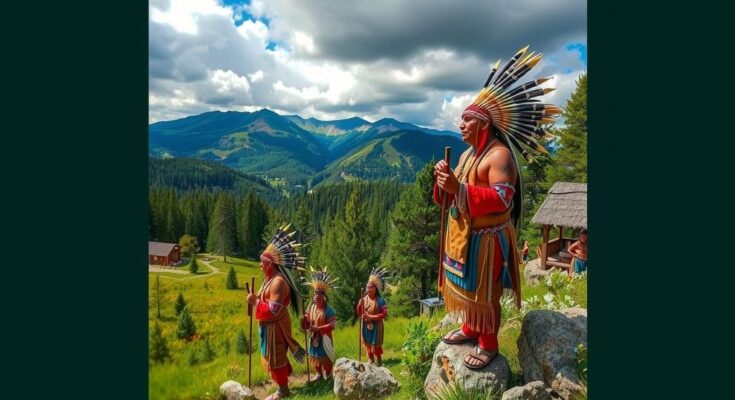A landmark settlement between the U.S. government and Jemez Pueblo tribe confirms the tribe’s rights to a part of Valles Caldera National Preserve for cultural practices. This resolution arrives after years of negotiations and litigation, marking a historic victory for Indigenous rights and emphasizing the importance of ancestral stewardship of land. Interior Secretary Haaland supports ongoing collaboration with Native tribes to preserve cultural ties to their homelands.
In a significant legal settlement, the U.S. government has reached an agreement with the Jemez Pueblo tribe of New Mexico regarding their claims to the Valles Caldera National Preserve. After years of negotiation, the federal appeals court has been urged to formally conclude litigation that began back in 2012, recognizing the tribe’s rights to approximately 5 square miles for traditional cultural and religious practices. This settlement is rooted in a 2023 court ruling affirming the pueblo’s rights to the Banco Bonito area within the expansive preserve. Interior Secretary Deb Haaland, proud member of the Laguna Pueblo and the first Native American in a Cabinet role, emphasized the importance of Indigenous peoples’ cultural connections to their ancestral lands. “It is essential that wherever we can, we allow the original stewards of these lands to live and worship in these places,” she stated, highlighting the intent for co-stewardship opportunities with tribes across public lands. The Jemez Pueblo welcomes this resolution, feeling hopeful about enhanced cooperation with federal land managers over this cherished forested area. Lawyer Randolph Barnhouse described this as a monumental achievement for Indigenous rights, marking a historic court victory for the tribe as it affirms their traditional property rights. The agreement aims for cooperation, allowing tribal participation in managing these lands alongside public rights. The tribe has insisted its aboriginal rights to the land were not extinguished, despite a counter ruling in 2019 which affirmed government title of the preserve. Following an appeal, the pueblo refined its claims to specific sites within Valles Caldera. While the appellate court acknowledged the tribe’s title to Banco Bonito, it rejected their claims to other regions. Valles Caldera is not merely land; it symbolizes a spiritual haven for the Jemez Pueblo, teeming with historical significance. Home to sweeping grasslands and diverse wildlife, the caldera is a canvas of rich tradition that has supported hunting, gathering, and sacred rituals for over 800 years. Redondo Peak, its tallest mountain, stands as a sacred landmark for religious pilgrimage, housing numerous shrines of reverence. The pueblo holds this land dear, referring to it as their spiritual mother, yet many traditions and sacred sites remain confidential, hidden away in carefully redacted court records.
This settlement highlights the ongoing struggle and perseverance of Native American tribes as they seek recognition of their historical rights to ancestral lands. The Jemez Pueblo’s claims to the Valles Caldera have their roots in centuries of cultural and spiritual bonds that Indigenous peoples have maintained with this land. The case underscores the federal government’s shifting stance on co-management arrangements with Indigenous tribes and the recognition of their land rights, even after historical dismissals.
The recent settlement signifies a momentous milestone for the Jemez Pueblo and Native American rights. It showcases the federal government’s recognition of Indigenous cultural significance attached to their ancestral lands, leading to potential cooperative stewardship. This resolution serves as a testament to the enduring legacy of tribes in managing and honoring their heritage as they navigate contemporary legal frameworks.
Original Source: www.silive.com



